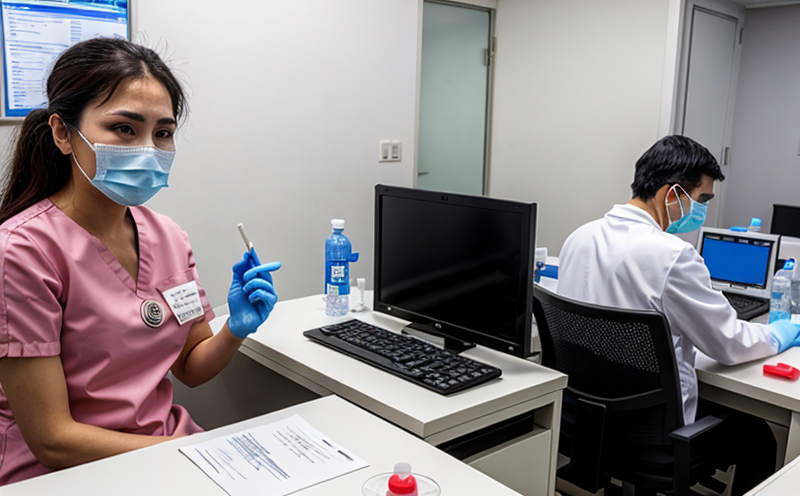Adenovirus Detection Testing in Environmental Water Samples
The presence of adenoviruses in environmental water samples poses significant health risks to public and ecological systems. Adenoviruses are a group of viruses that can cause respiratory, gastrointestinal, and other infections in humans. Detecting these viruses early is critical for preventing outbreaks and ensuring the safety of drinking water supplies.
Our adenovirus detection testing service employs advanced analytical techniques tailored specifically to the challenges posed by environmental samples. The methodology ensures accurate identification and quantification of adenoviruses within complex matrices, providing reliable data that inform public health decisions and water quality management strategies. This service is essential for compliance with international standards such as ISO 17295:2013 and WHO guidelines on virus monitoring in drinking water.
The testing process begins with the collection of environmental water samples from sources like reservoirs, rivers, or treatment plants. These samples are then processed using specialized filtration methods to concentrate potential viral particles. Next, nucleic acid extraction is performed under controlled conditions to isolate adenoviral DNA/RNA without degradation. The isolated genetic material is subjected to real-time PCR amplification and detection, which allows for sensitive quantification of the target virus.
The results are reported in terms of adenovirus concentration per liter of water, providing quantitative data that can be used for risk assessment and mitigation efforts. This information is invaluable for stakeholders involved in public health, environmental protection, and water resource management. By detecting adenoviruses early, we enable swift action to prevent potential outbreaks and ensure the safety of water supplies.
Our laboratory adheres strictly to strict quality control measures, ensuring that every sample undergoes rigorous testing protocols. We employ experienced technicians who are trained in handling sensitive biological materials with care and precision. The entire process is transparent, allowing clients to track their samples through our secure online portal.
Applied Standards
The adenovirus detection testing service complies with a variety of international standards that guide the procedures for virus detection in environmental water samples:
- ISO 17295:2013 – This standard provides guidelines for the sampling and analysis of viruses in drinking water. It ensures that our testing protocols are robust and consistent with global best practices.
- WHO Guidelines on Water, Sanitation, and Hygiene – These guidelines emphasize the importance of monitoring viruses like adenoviruses to protect public health. Our service is aligned with these recommendations to ensure compliance and safety.
- American Public Health Association (APHA) Standard Methods – APHA methods are widely recognized for their accuracy and reliability in environmental testing. We use these methods as part of our standard operating procedures.
By adhering to these standards, we ensure that the results from our adenovirus detection tests are credible and internationally accepted, providing clients with confidence in the data they receive.
Scope and Methodology
The scope of our adenovirus detection testing service is comprehensive, covering all aspects necessary for accurate identification and quantification of these viruses in environmental water samples. We provide a full suite of services that include:
- Sample Collection: Expertly collected from various sources such as reservoirs, rivers, or treatment plants.
- Filtration and Concentration: Advanced filtration methods to concentrate potential viral particles for more accurate detection.
- Nucleic Acid Extraction: Precision extraction of adenoviral DNA/RNA without degradation using state-of-the-art techniques.
- Real-Time PCR Amplification: Sensitive and specific amplification of the target virus’s genetic material to ensure reliable quantification.
- Data Reporting: Comprehensive reports detailing the concentration of adenoviruses in the sample, along with relevant metadata for context.
The methodology we employ is designed to be robust and reproducible, ensuring that every test is conducted under controlled conditions. This approach not only enhances accuracy but also provides a high level of confidence in our results. Our service supports both regulatory compliance and internal quality control initiatives within organizations involved in public health and environmental management.





